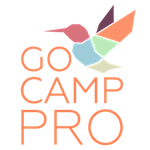4 Principles Directors of Resilient Camps Live By
Hold on to the lessons of your summer season.
Before they get lost in next year’s to-do list, let’s lock those lessons in with the Resilient Camp Blueprint.
This four-part guide helps you:
Focus on what matters.
Keep improving, one step at a time.
Use AI to win back hours.
Grow a culture of trust.
Each short lesson shows you how to keep what worked, fix what didn’t, and set your team up for an even stronger season—without adding to your load.
Principle 1: Focus on What Matters Most to the People You Serve
What this means:
Start by clearly understanding what your campers, families, donors, and staff truly need and value. Use regular feedback to guide your work, not just to fix problems but to bring joy and real value.
Tips to try:
Know who your “ideal families” or supporters are. These are the folks who get what you’re about and feel energized by your mission.
Ask what they care about, what frustrates them, and what would make things easier or better.
Keep checking in so you know you’re still on track.
People to keep in mind:
Campers and families want ease, recognition, and help with real challenges. They respond more to what they might lose than what they might gain.
Donors want to make a difference. They want to feel needed and appreciated, and they want to know the real impact of their gift.
Staff want purpose, respect, and the chance to grow. They need to feel safe, seen, and supported—especially if they’re neurodivergent.
It’s okay to start small.
You don’t need to reach everyone. Focus on one clear group you can serve really well. Bigger reach can come later.
Principle 2: Keep Improving, Bit by Bit
What this means:
Think of every program or system as an experiment. Try things, learn from them, and keep making small changes for the better. Focus on what works and let go of what doesn’t.
Tips to try:
Don’t wait for perfect. Test new ideas in simple ways first.
Gather quick feedback and adjust.
Make learning part of your everyday work.
Why it helps:
This approach makes your work more responsive and people-focused.
Staff feel safer and more engaged when mistakes are treated as chances to grow.
A gentle reminder:
Fast learning is more helpful than slow perfection. Be open to changing direction if something isn’t landing.
Principle 3: Use AI to Save Time, Not to Replace People
What this means:
Let AI handle the boring, repetitive stuff so you and your team can focus on the work that needs heart and care.
Ways it can help:
Sorting leads or registration info
Writing first drafts of emails or summaries
Spotting trends or needs in your data
But here’s the key:
Make sure AI helps strengthen real connection. People still want to feel noticed and valued by other people.
Use your time for what matters most:
Building relationships
Solving tough problems
Creating a warm, welcoming experience
Watch-out:
You’ll still need human judgment to check the AI’s work and make sure it aligns with your values.
Principle 4: Build a Culture of Trust and Belonging
What this means:
People do their best work when they feel safe, respected, and connected. Your culture matters just as much as your systems.
Tips to try:
Create time and space for open feedback
Lead with care and curiosity, not just direction
Invest in team development, not just new tools
For staff:
Safety and trust come first
They want to grow and feel heard
They need more than just rules—they need purpose
For families and supporters:
Trust grows when you’re consistent, open, and reliable
Letting go is part of leadership:
Sometimes, this means saying goodbye to draining clients or staff who don’t fit the culture. That creates space for those who do.
One step at a time
These ideas can help your camp or program grow in a way that feels sustainable and real. Start small. Stay kind. And keep checking in with the people you serve.

